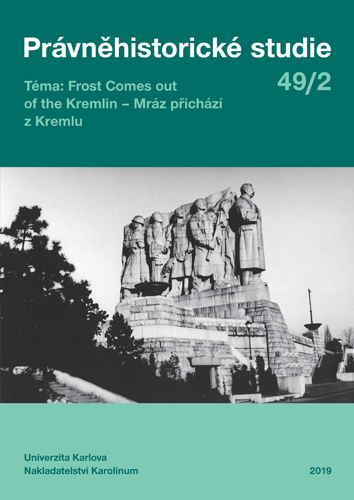Gleichberechtigung in erster Instanz – Scheidungsurteile der 1950er Jahre im Ost-/West-Vergleich
Equal Rights in the First Instance – Divorce Decrees of the 1950s in the East/West Comparison
Author(s): Raphaela EtzoldSubject(s): History of Law
Published by: Univerzita Karlova v Praze, Nakladatelství Karolinum
Keywords: equal rights; family law; gender equality; judge-made law; divorce; marriage law; Germany
Summary/Abstract: Two German constitutions led to exceptional circumstances in German family law of the1950s: the principle of gender equality according to Art. 7 Abs. 1 GDR-Constitution and Art. 3 Abs. 2 of the Western German “Basic Law” invalidated all other conflicting law in the early years of both legal systems. During times of fruitless reform efforts, it was up to the courts to decide whether or not they still wanted to apply old law and how old civil law-norms had to be interpreted in conformity with new constitutional principles. Consequently, two parallel phases of judge-made law occurred, an exceptional situation for continental European legal systems. Particular difficulties were expected at the area of family law as the BGB (German Civil Code) as well as the new marriage law of the Allied Control Council of 1946 provided very different rights and obligations for both sexes. Therefore, analyzing court files on divorce proceedings of these period are particularly eye opening with respect to differences and similarities of both legal systems.
Journal: Právněhistorické studie
- Issue Year: 49/2019
- Issue No: 2
- Page Range: 58-72
- Page Count: 15
- Language: German

